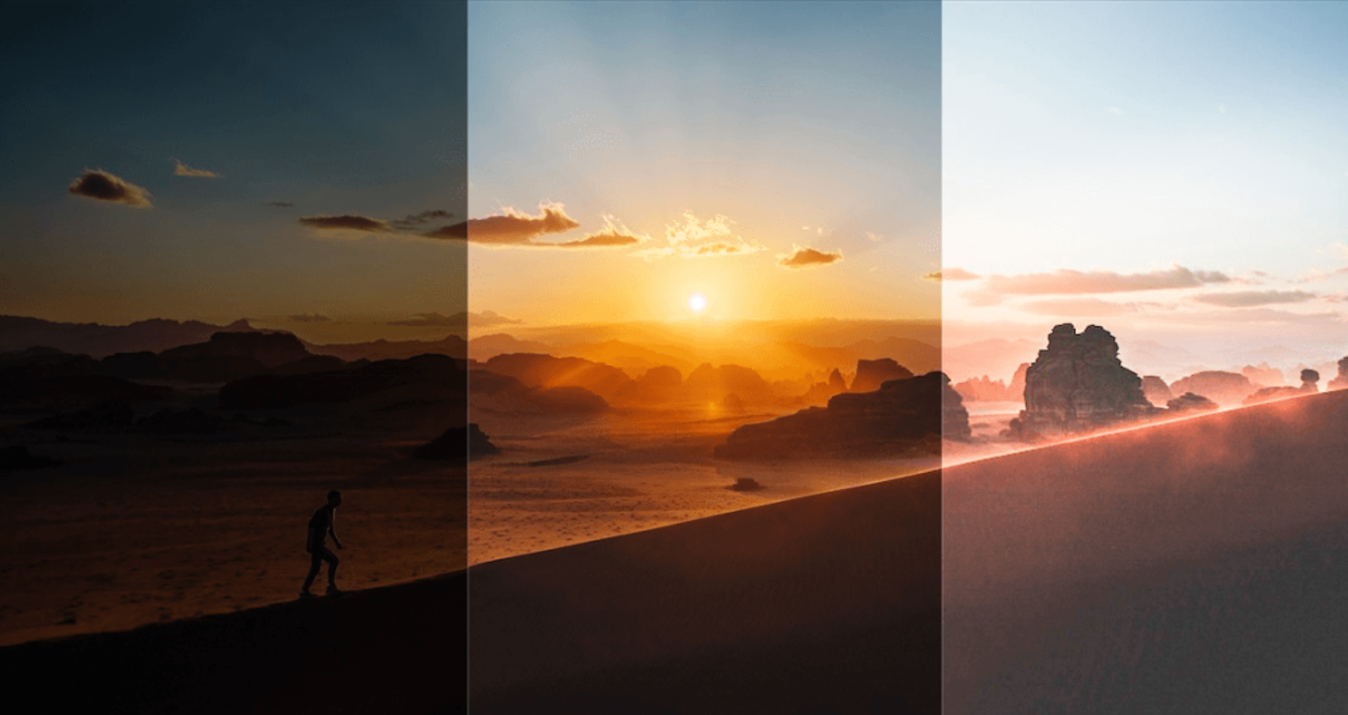Fun Facts About Photography That Will Amaze You
April 26, 2024

Dive into a world where every snapshot tells a story! This post is your ticket to explore photography's rich history, groundbreaking technology, and its profound impact on our lives!
Photography is an incredible journey through time that helps us capture moments that might otherwise be lost forever!
Today, we're going to talk about around 50 interesting facts about photography with you! They contain a mix of surprising history, cool technology, unforgettable images, and maybe even a few things you never knew about your own camera!
So, let's see what makes photography so incredibly cool!
The Dawn of Photography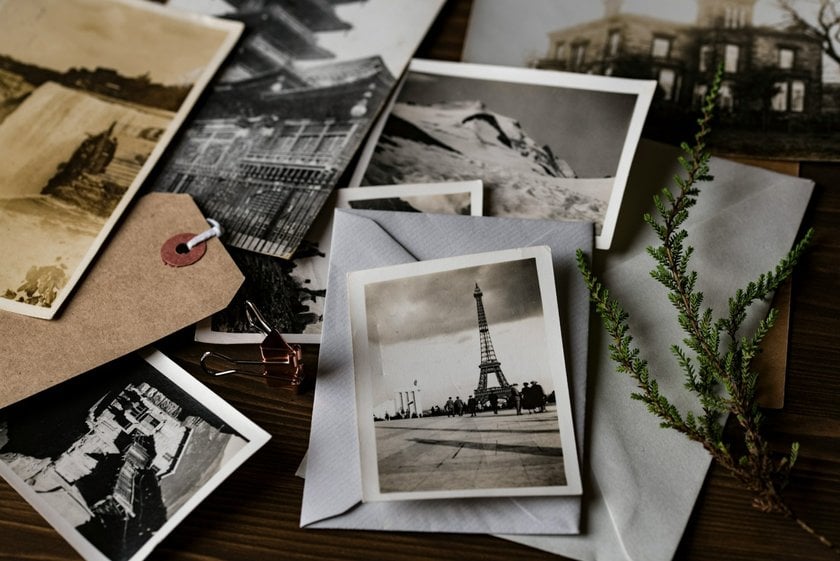
Photography's journey from its birth to the digital age is nothing short of a saga. Here are cool facts about photography that trace this incredible evolution!
In old photos, people didn't smile because the long exposure times required by early photography made it difficult to hold a smile for hours.
That first photo wasn't on paper but a pewter plate, showing early creativity in photography.
In 1861, Thomas Sutton snapped the first-ever color photo, but it wasn't until Kodachrome film hit the scene in the mid-20th century that colors in photographs really started to pop.
George Eastman shakes things up in the 1880s by introducing film rolls. Suddenly, anyone could take a photo without a fancy setup.
In the late 1800s, Pictorialism made photos dreamy and art-like with a soft focus.
The 1930s brought street photography into focus, capturing real, unposed city life.
Photojournalism in the mid-20th century showed us life's raw moments, from wars to weddings.
Come 1948, the Polaroid camera is a hit, letting people snap a photo and hold the print in just minutes.
The 1960s introduced conceptual photography, where the photo's idea mattered more than the image.
Fast forward to 1975: Steve Sasson at Kodak crafts the first digital camera. It's big, it's clunky, and it only does black and white, but it's the future.
101 Photography Facts To Blow Your Mind!
Learn more
101 Photography Facts To Blow Your Mind!
Learn moreTechnological Innovations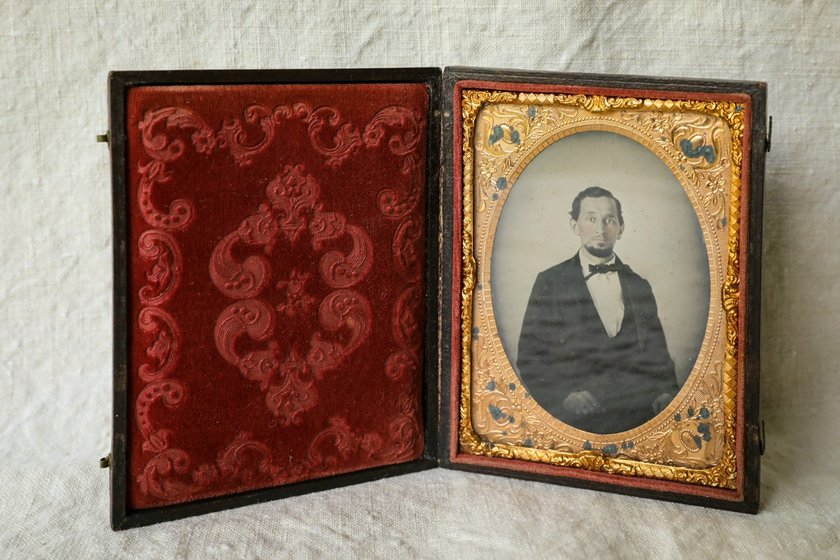
Digital tools now let photographers blend real scenes with imagination for stunning results.
The world's largest camera, built in 1900, was more like a room and made for just one photo.
Spy tech from satellites helped develop the technology we use in digital cameras today.
The camera obscura, an ancient device, projected live scenes onto dark surfaces.
The daguerreotype, from 1839, froze moments in time but required subjects to stay still.
In 1846, Calvert Richard Jones used an early retouch photo editor technique by painting directly on a negative with Indian ink to seamlessly remove a monk from his photo, showcasing one of the first instances of photo manipulation.
Film rolls by Kodak in 1888 brought photography into the mainstream.
The Leica I camera in 1925 made high-quality portable photography possible.
SLR cameras in the 1960s changed the game by letting photographers see the actual shot through the lens.
In 1998, Fujifilm introduced the FUJIX DS-1P at Photokina, the first digital camera with a memory card that could hold up to 10 photos on its 2MB capacity.
More Photography Milestones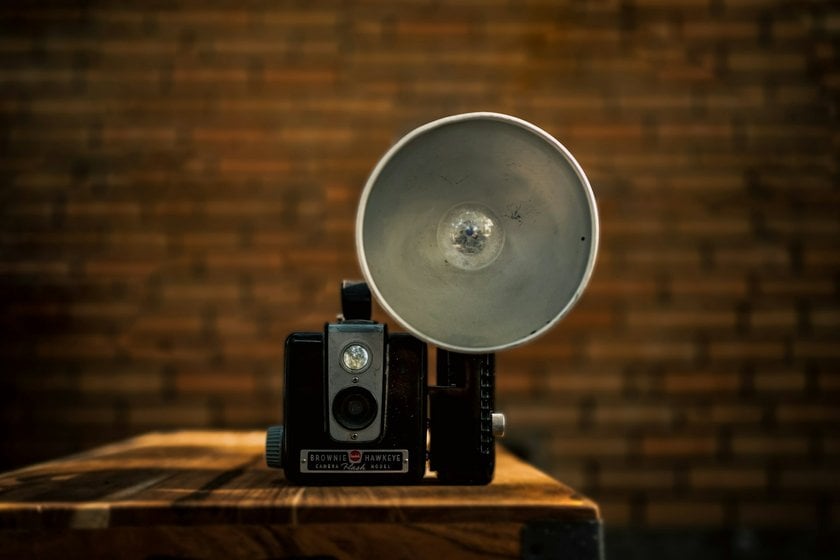
The Petzval lens cut down sitting times for portraits with its faster exposure in 1840.
Zoom lenses in the 1950s meant no more switching lenses for different shots.
The Leica Noctilux-M 50mm lens is known for its incredible low-light shots.
The flash bulb, appearing in the 1920s, illuminated photography quite literally.
Polarizing filters, popular in the 1930s, started making skies bluer and reducing glare in photos.
CompactFlash cards in 1994 made storing thousands of photos on something the size of a postage stamp possible.
Advanced yet easy-to-use photo editor
Get Luminar Neo Now
Advanced yet easy-to-use photo editor
Get Luminar Neo NowThe Impact of Photography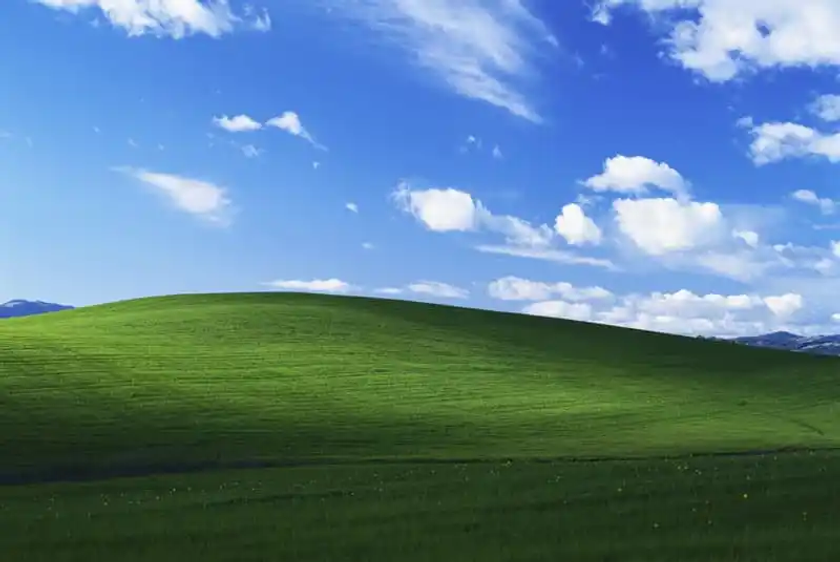
Photography does more than capture moments; it can shift how we see the world and leave a mark on history. Let's take a closer look at how these pictures have become a part of our lives, meet the people taking them, and explore some interesting and fun facts about photographers!
In 1828, Louis Daguerre unintentionally captured the first photo of a person while trying to photograph the Boulevard du Temple in Paris; the long exposure of 7 minutes included a man standing in the street!
The 1936 "Migrant Mother" photograph by Dorothea Lange highlighted the struggles of the Great Depression, prompting government action to assist needy farmers.
Neil Armstrong's 1969 moon landing photos expanded humanity's view of its place in the universe.
Andreas Gursky's "Rhein II" sold for over $4 million, one of the priciest photos ever.
The oldest known photo gives us a direct look back nearly 200 years. It was “View from the Window at Le Gras, taken with Circa in 1826 after an eight-hour exposure by Joseph Nicéphore Niépce.
Voyager 1's photo of Earth from 3.7 billion miles away puts our world in perspective.
The photo 'Bliss,' taken by Charles O'Rear in Sonoma, California in 1996, became the most viewed photo in history as the default wallpaper for Windows XP.
In 1858, Felix Tournachon captured the first aerial photograph from a balloon over Paris, though this photo no longer exists. The oldest surviving aerial photo, taken by James Wallace Black of Boston in 1860, remains a testament to early photographic innovation.
A Look to the Future
AI is making taking great photos easier by automating settings and edits. For example, today we can remove things from pictures easily with just one click, thanks to modern digital editing!
Virtual reality photography is starting to let us step into photos, making them feel real.
Environmental concerns are driving photography towards more sustainable practices.
The revival of film photography shows a renewed appreciation for its tactile, craft-oriented approach.
Conclusion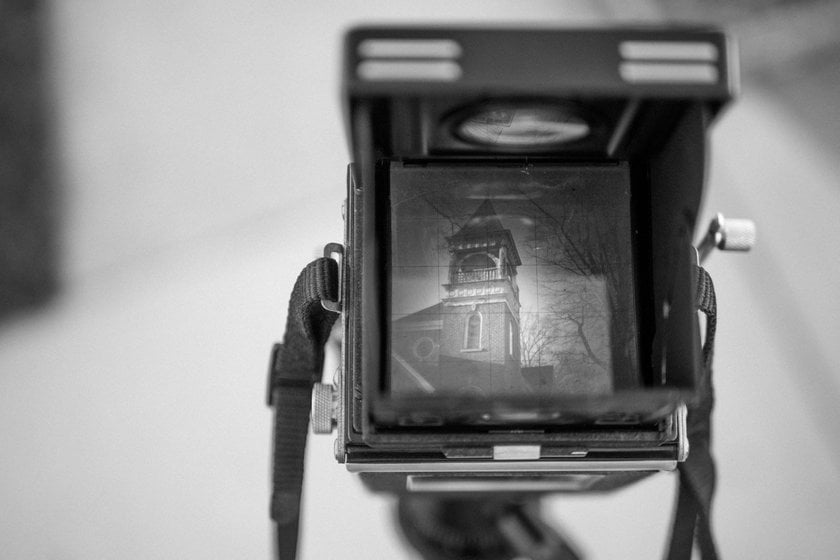
We have covered interesting facts about being a photographer and photography. This art has taken us from simple images captured on metal plates to snapping photos with our phones that can do almost anything.
We have seen photos sell for millions, cameras that can take pictures from space, and editing software that fixes photos with a click. Photography tells our stories, saves our history, and shows us the world in ways we never imagined. It's always changing, and always exciting, and it shows us that every moment has a story worth capturing.










